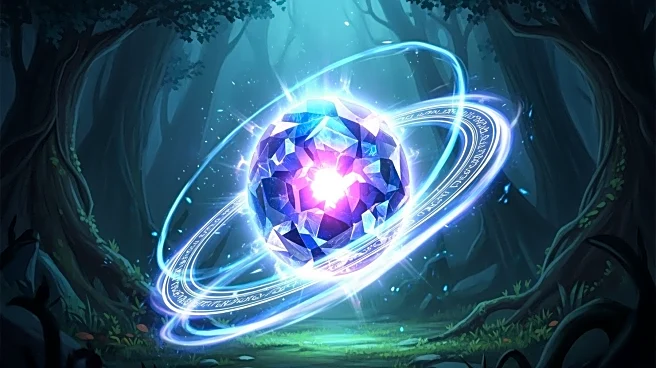What's Happening?
Quantic Dream, known for narrative-driven games like Heavy Rain and Beyond: Two Souls, is venturing into competitive multiplayer gaming with its new title, Spellcasters Chronicles. This game introduces
a unique blend of action and strategy, featuring teams of three players who assume the roles of powerful mages in a multiplayer online battle arena setting. Players can summon creatures, fly around the map, and engage in battles using deck-building elements to choose spells and summons. The game aims to integrate narrative elements into its player-versus-player gameplay, although specific details on how this will be achieved are yet to be revealed.
Why It's Important?
The introduction of Spellcasters Chronicles marks a significant shift for Quantic Dream, expanding its portfolio beyond narrative-focused games to include competitive multiplayer experiences. This move could attract a new audience to the studio, potentially increasing its market presence in the gaming industry. The game's unique mechanics, such as flying and deck-building, may offer fresh gameplay experiences that differentiate it from other multiplayer online battle arenas like League of Legends and Dota 2. The integration of narrative elements could also set a new standard for storytelling in competitive games, influencing future game development trends.
What's Next?
Quantic Dream plans to reveal more details about how narrative elements will be integrated into Spellcasters Chronicles in the coming months. The game is slated for a closed beta on PC by the end of the year, which will allow players to experience its unique blend of action and strategy firsthand. The success of this beta could determine the game's future development and release strategy, as well as its reception in the competitive gaming market.
Beyond the Headlines
The attempt to blend narrative with competitive gameplay in Spellcasters Chronicles could lead to new ethical and cultural discussions about storytelling in games. As players engage with the game's narrative-driven elements, it may challenge traditional perceptions of multiplayer games as purely skill-based experiences, potentially fostering a deeper connection between players and the game's world.










